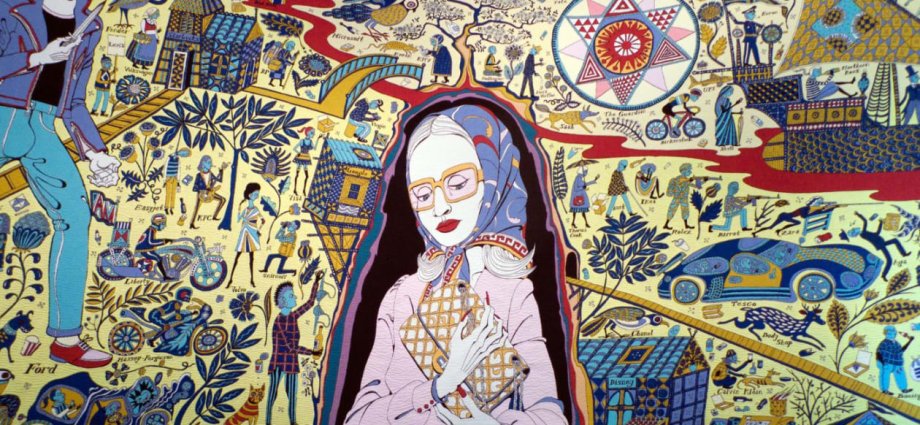Grayson Perry is arguably the most famous artist working in Britain today, said BBC Scotland. Since the 1980s, he has gone “from taking pottery evening classes to winning the Turner Prize”, and presenting programmes on Channel 4. He is now held in high esteem by both the art establishment and the general public, and this summer has seen the self-titled “Transvestite Potter” scale new heights. In June, he was knighted. Now, “the biggest exhibition of his 40-year career” has opened in Edinburgh.
It is the first retrospective he has ever had in the UK, featuring more than 80 of his best-known works: pots, tapestries, prints and sculptures. Among the highlights is his “astonishing” 15-metre “Walthamstow Tapestry”, said Duncan Macmillan in The Scotsman. It’s an ironic epic, which tells the story of the seven ages of man, the journey from birth to death, “through the lens of shopping”. Perry’s work reflects on all sorts of “issues”: masculinity, class, Englishness. But it’s all done with a deft satirical touch and a “truly original vision”. The Royal Scottish Academy is hosting the show for its neighbour, the National Galleries of Scotland; I haven’t seen its halls “so well-filled by a single living artist” for many decades.
Perry is “a manifestly talented artist who can draw detailed, precise, complex images”, said Jonathan Jones in The Guardian. Sadly, he chooses to throw away this talent on “the vanity of small amusements”. Much here relates directly to his unhappy childhood in 1960s Essex, during which he created “a private universe” around a teddy bear called Alan Measles. Alan is a recurring figure here: we see him cast in bronze, cradling the artist’s “inner child”; posing as a knight; and being “transported in a glass carriage on the back of Perry’s motorbike”. If there’s any charm to this, it soon wears thin. It is all so “very English”, Perry’s whimsy, and his ironic deflation of anything that looks too serious. He has chosen to be “a middle-class entertainer”, a suburban pop artist. Ultimately, the “lack of passion and courage” here is “depressing”.
For all its “intense intricacy”, Perry’s style of drawing is “distinctly adolescent”, said Alastair Sooke in The Daily Telegraph. He “abhors empty space”, and his art is an ambiguity-free “hodgepodge of homage and imitation”, in which he updates masterpieces such as Hogarth’s The Rake’s Progress for contemporary audiences. His preferred aesthetic – “a sort of homespun, consciously clumsy finish” – seems mannered: “proficiency masquerading as ineptitude”. Yet he has one “superpower”: he is genuinely funny. Whether they are lampooning the art market or the puritanism of “social justice warriors”, his “filthy, puckish jugs, jars, vases, and urns” rarely fail to raise a laugh. This show demonstrates that while he may not be a great artist, he is unquestionably “a great satirist”.
National Galleries of Scotland (Royal Scottish Academy), Edinburgh (0131-624 6200). Until 12 November; nationalgalleries.org











